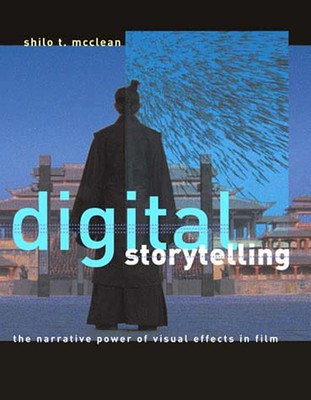
- We will send in 10–14 business days.
- Author: Shilo T McClean
- Publisher: MIT Press
- ISBN-10: 0262633698
- ISBN-13: 9780262633697
- Format: 16.8 x 21.8 x 1.8 cm, softcover
- Language: English
- SAVE -10% with code: EXTRA
Reviews
Description
How digital visual effects in film can be used to support storytelling: a guide for scriptwriters and students.Computer-generated effects are often blamed for bad Hollywood movies. Yet when a critic complains that technology swamps storytelling (in a review of Van Helsing, calling it an example of everything that is wrong with Hollywood computer-generated effects movies), it says more about the weakness of the story than the strength of the technology. In Digital Storytelling, Shilo McClean shows how digital visual effects can be a tool of storytelling in film, adding narrative power as do sound, color, and experimental camera angles--other innovative film technologies that were once criticized for being distractions from the story. It is time, she says, to rethink the function of digital visual effects.
Effects artists say--contrary to the critics--that effects always derive from story. Digital effects are a part of production, not post-production; they are becoming part of the story development process. Digital Storytelling is grounded in filmmaking, the scriptwriting process in particular. McClean considers crucial questions about digital visual effects--whether they undermine classical storytelling structure, if they always call attention to themselves, whether their use is limited to certain genres--and looks at contemporary films (including a chapter-long analysis of Steven Spielberg's use of computer-generated effects) and contemporary film theory to find the answers. McClean argues that to consider digital visual effects as simply contributing the wow factor underestimates them. They are, she writes, the legitimate inheritors of film storycraft.
EXTRA 10 % discount with code: EXTRA
The promotion ends in 17d.04:36:35
The discount code is valid when purchasing from 10 €. Discounts do not stack.
- Author: Shilo T McClean
- Publisher: MIT Press
- ISBN-10: 0262633698
- ISBN-13: 9780262633697
- Format: 16.8 x 21.8 x 1.8 cm, softcover
- Language: English English
Computer-generated effects are often blamed for bad Hollywood movies. Yet when a critic complains that technology swamps storytelling (in a review of Van Helsing, calling it an example of everything that is wrong with Hollywood computer-generated effects movies), it says more about the weakness of the story than the strength of the technology. In Digital Storytelling, Shilo McClean shows how digital visual effects can be a tool of storytelling in film, adding narrative power as do sound, color, and experimental camera angles--other innovative film technologies that were once criticized for being distractions from the story. It is time, she says, to rethink the function of digital visual effects.
Effects artists say--contrary to the critics--that effects always derive from story. Digital effects are a part of production, not post-production; they are becoming part of the story development process. Digital Storytelling is grounded in filmmaking, the scriptwriting process in particular. McClean considers crucial questions about digital visual effects--whether they undermine classical storytelling structure, if they always call attention to themselves, whether their use is limited to certain genres--and looks at contemporary films (including a chapter-long analysis of Steven Spielberg's use of computer-generated effects) and contemporary film theory to find the answers. McClean argues that to consider digital visual effects as simply contributing the wow factor underestimates them. They are, she writes, the legitimate inheritors of film storycraft.


Reviews